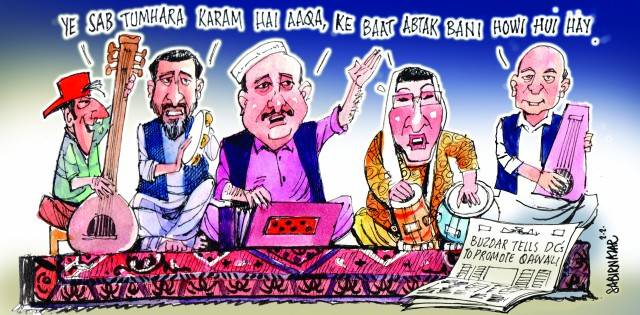
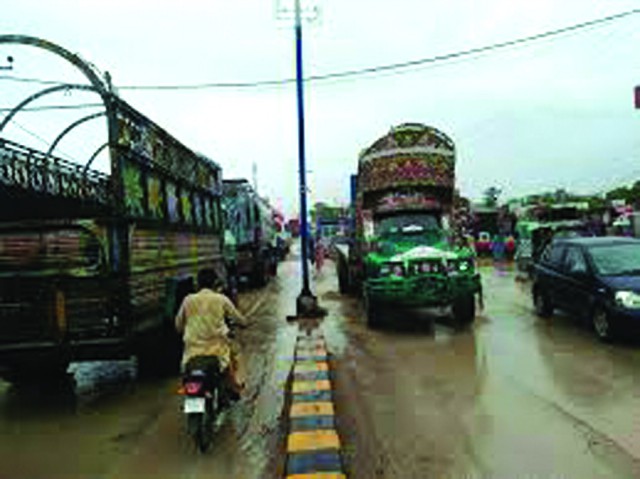
New roads
Madam,
The main problem in Hub city of Balochistan is traffic and many people face many issues as a result of this problem on a daily basis. A few years ago, the government announced the construction of a new road. Unfortunately, even though a long time has passed since that announcement, work on this road has not yet begun. Whenever some progress is made in this regard, things come to a halt due to one political reason or the other. Some people debate the need for this road at all, and argue that another one should be constructed in Duraji instead. People are immensely inconvenienced every day because of traffic, but still no one has taken any concrete action. If a new road has been constructed, then why is it blocked and no one is allowed to travel on it? I request the government of Balochistan to please solve the issue and do something for the people.
Muhammad Irfan.
Via email.
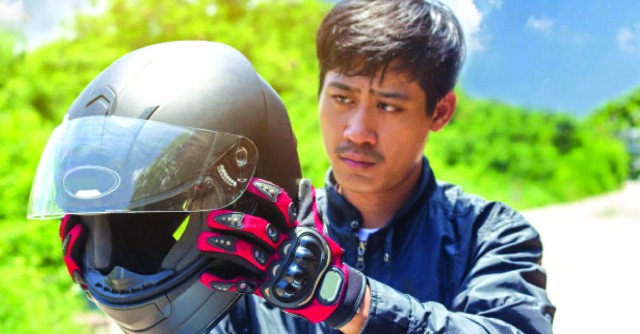
Road safety
Madam,
I would like to point the attention of the Balochistan government towards the serious issue of motorcycle riders who do not wear helmets.
Recently, a 16-year-old boy died in a road accident in Turbat. He was not wearing a helmet and died instantly. I have seen a number of people out on the roads in Quetta who do not wear helmets while riding motorcycles. The government needs to conduct awareness campaigns to inform the public about the need to follow safety rules. It must be impressed upon the public that wearing helmets is not an inconvenience and may in fact save their life.
Habibullah Altaf,
Via email.
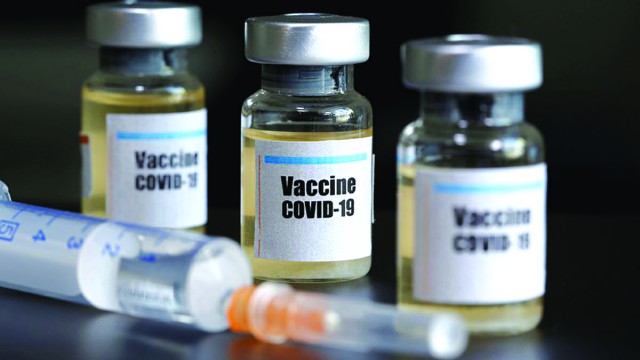
Vaccine
Madam,
According to a news report, Oxford University has successfully prepared a vaccine for Covid-19 and is going to give these vaccines to America to control the spread of the virus. I would like to request Oxford University to please provide vaccines to Pakistan as well. Here, the cases are rising and every day we find out about scores of new cases and deaths due to Covid-19. Before the second wave, our city Turbat did not witness any Covid-19 case but with the arrival of winter season and second wave of the virus in Pakistan, each day more than 15 cases are being reported. Our country is in dire need of the vaccine.
I would also like to draw the attention of local authorities towards the issue of weak and useless mobile networks in Turbat which have been creating so many issues for the residents. Turbat is the second biggest city of Balochistan and mobile networks have become one of the basic necessities. We have mobile networks of Jazz, Warid, Mobilink, Zong and Ufone but unfortunately, they do not work. We, the residents of Turbat, have demanded 4G connections in the city. If we cannot get 4G, at least we should have good networks that are functional.
Adnan Masood,
Via email.
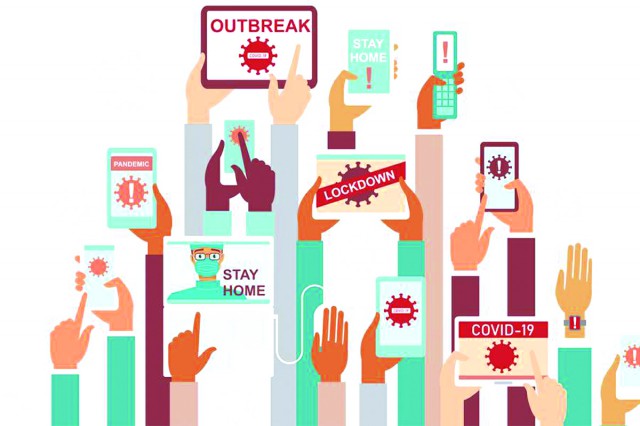
‘Pakistani citizens trust media coverage of Covid-19’
Majority of the public used TV media to get news on coronavirus, study says
The Pakistani public has expressed its trust in the mainstream media’s coverage of the Covid-19 pandemic, according to a new study conducted by Media Matters for Democracy (MMfD).
The research titled Public Trust in the Media during the Coronavirus Pandemic was published by MMfD as part of the Civil Society for Independent Media and Expression (CIME) initiative jointly undertaken with the Centre for Peace and Development Initiatives and the Pakistan Press Foundation.
People felt the Pakistani media coverage of Covid-19 provided them the information they needed, supplied largely accurate information, and ensured the benefit of the public, according to the study, which relied on a national public opinion survey of 345 respondents.
Around 57 percent of the respondents considered the mainstream media as trustworthy sources of coronavirus news and information. People also frequently relied on their friends-and-family networks to get coronavirus updates and a majority (56 percent) also trusted these sources of information.
On the other hand, 30 percent of the respondents saw social media as untrustworthy when it came to information about the pandemic.
While half of the respondents said they had never used the Pakistan government’s Covid-19 web portal or smartphone app, a majority (52 percent) still trusted official sources for information and updates on the virus.
The TV medium was the most used media type for Covid-19 news, according to the survey, and people were most interested in getting information about coronavirus safety precautions.
The study, which attempted to understand the news consumption patterns and levels of public trust for Covid-19 information, also asked people about the lockdown’s effects on their ability to access information. A vast majority (74 percent) of the respondents reported that the pandemic had not reduced their ability to access news and information.
The Covid-19 pandemic was accompanied by an overwhelming amount of false medical information, rumors and conspiracy theories on the one hand, while on the other hand, journalists and media organisations fought against health risks to bring reliable information to the public. The research recommends that the government should use the TV medium for its Covid-19 public awareness campaigns and supply messages in local languages to reach the majority of the public. The study also suggests that media outlets should continue to provide practical information to the public so they can keep themselves informed and safe during the pandemic.
The CIME initiative hopes to contribute to the enhanced protection and promotion of freedom of expression and right to information in Pakistan by increasing the availability of knowledge about policy trends regarding these rights, raising awareness about potential challenges to the exercise of the rights, and by building the capacity of journalists, lawyers, and human rights defenders to respond to risks and violations.
Media Matters for Democracy is a Pakistani non-profit organisation that works on press freedom and digital rights. Its activities include policy research, advocacy, training, and legal aid. —PR

